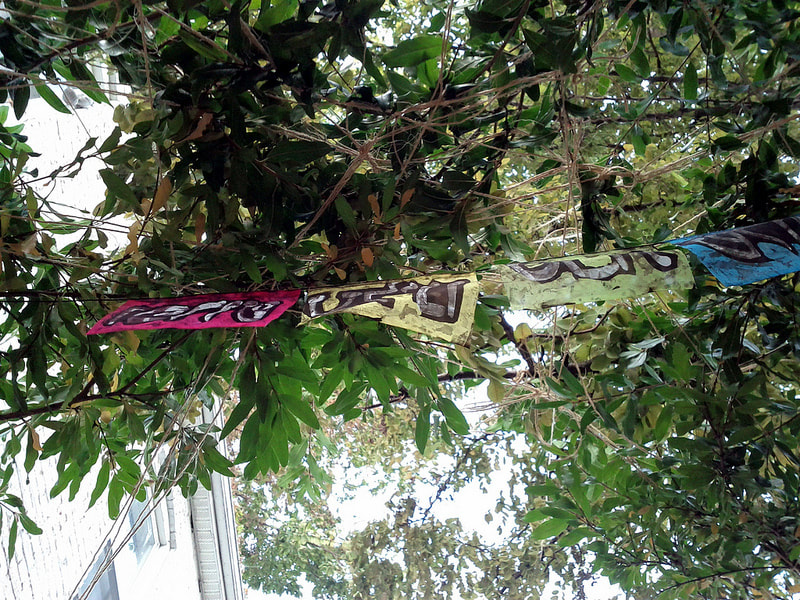|
Israel should not forget that it was the Lord that released them from the bondage of Egypt and led them through the wilderness for 40 years until they were ready to enter the Promised Land. In their journey through the wilderness Israel encountered different terrain, each of which had its own challenges. There are certain aspects of the Feast of Tabernacles (to take place for seven days, beginning on the 15th day of the 7th month - Leviticus 23:34) that are meant to be remembered through symbols. The people were to build booths with roofs that remained open at the top so that they could see the sky and commemorate the time when they dwelt in tents and wandered through the wilderness. As the Israelites looked up from their temporary booths, or Sukkahs, they were able to look up at the stars and remember God's promise to Abraham that his descendants would be as numerous as the stars.
Leviticus 23:40 and Nehemiah 8:15 instruct us to gather the fruits of the harvest and cut specific types of branches to use as a wave offering to the Lord and coverings on the roof of the Sukkah. In his Book of Mysteries, Jonathan Cahn defines the Hebrew word lulav as a cluster of branches used to worship God during the Feast of Tabernacles. The lulav consists of three different species of plants, each one reminding us of a specific place in the journey through the wilderness. As the palm tree grows in the valleys, its fronds remind God's people of their walk through the valley. The journey through the mountains would be represented by the myrtle branch. The willow, that grows near the water, would be a reminder that God gives water in the desert places. Jonathan tells us, "The wilderness is the world; the journey is this life. And to the child of God, this is the message of the lulav: The palm tells you that no matter what valley you go through in your life, no matter how dark and deep, you will never be alone. He will be with you. And the myrtle tells you that when you go through the rockiest of times, He will go through it with you and will keep you from falling. And the willow tells you that in the dry and empty places of your life, He will never leave you, but will stay close, and will even give you rivers in the desert." The roof of the Sukkah is not only covered by the branches of the lulav, but also the fruit of our harvest. Of course, fruit speaks of the Promised Land. We are all on a journey to our land of promise. It is God's will that we "bear much fruit" so that we show ourselves to be His disciples. (John 15:8) As we journey through life, we will encounter valleys, mountains and dry places. We should remember the lessons of the lulav: "God goes with us; He will never leave or forsake us." (Deuteronomy 31:6) His desire is that we make it through every landscape that we encounter and that we produce fruit in every circumstance. Here is what the prophet Isaiah said to the Israelites: "Fear not, for I have redeemed you; I have summoned you by name; you are mine. When you pass through the waters, I will be with you; and when you pass through the rivers, they will not sweep over you. When you walk through the fire, you will not be burned; the flames will not set you ablaze. For I am the Lord, your God, the Holy One of Israel, your Savior..." (Isaiah 43:1-3) The shepherd king, David, knew the truth of this and wrote about God's faithfulness as a shepherd in Psalm 23. "...He makes me lie down in green pastures. He leads me beside quiet waters; He restores my soul. He guides me in paths of righteousness for His name's sake...I will fear no evil, for you are with me...Surely goodness and love/mercy will follow me all the days of my life, and I will dwell in the house of the Lord forever." Let us remember the faithfulness of God and how He cared for the Israelites as they traveled through the wilderness. One of the lessons of the Feast of Tabernacles is the affirmation of His faithfulness and the truth that one day we will tabernacle with Him at His table. The branches of the lulav and fruit of the harvest symbolize God's care over us today. Let us remember the message of these elements--a message from the Old Testament that has meaning for us today. By faith, grab hold of the truth and let it comfort and encourage you throughout the journey of life. |
Joan E. MathiasCategories
All
Archives
July 2024
|

 RSS Feed
RSS Feed